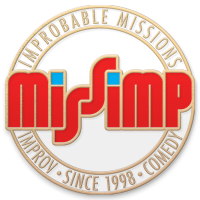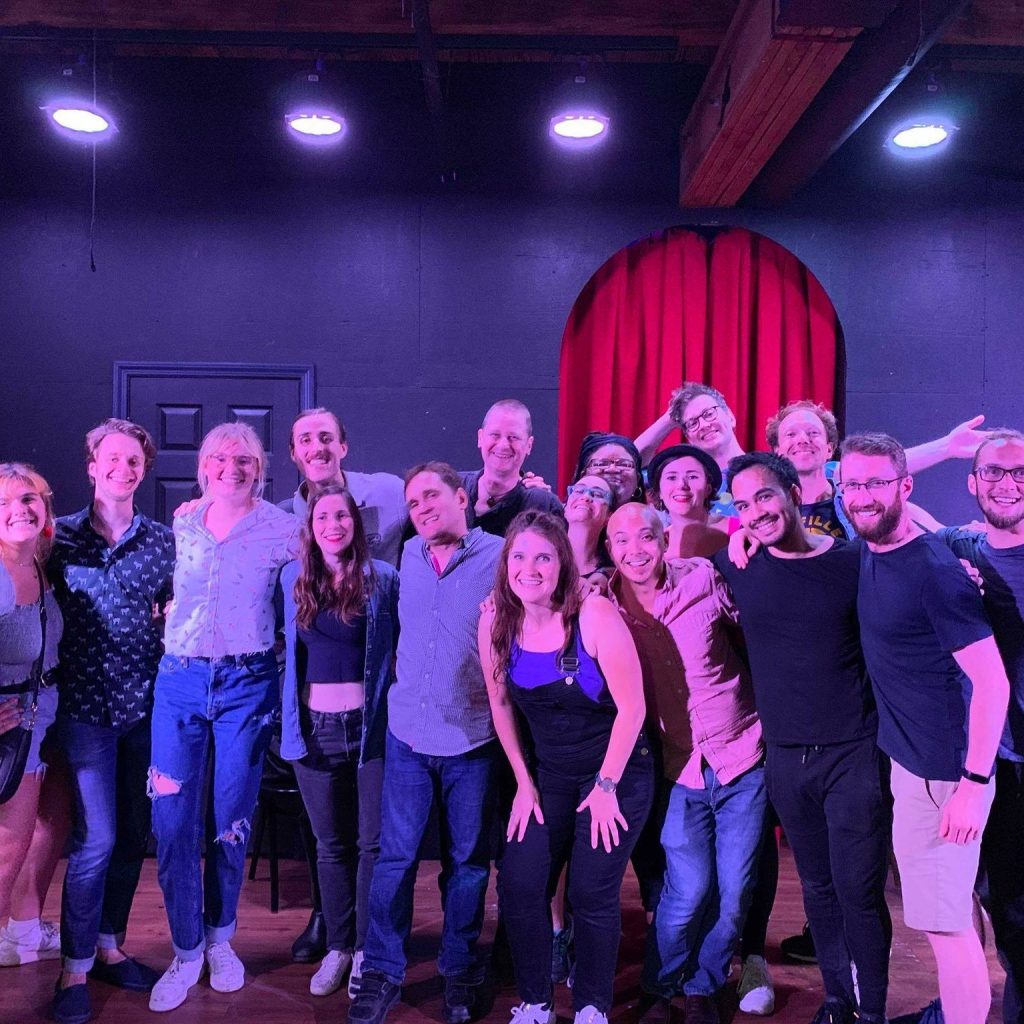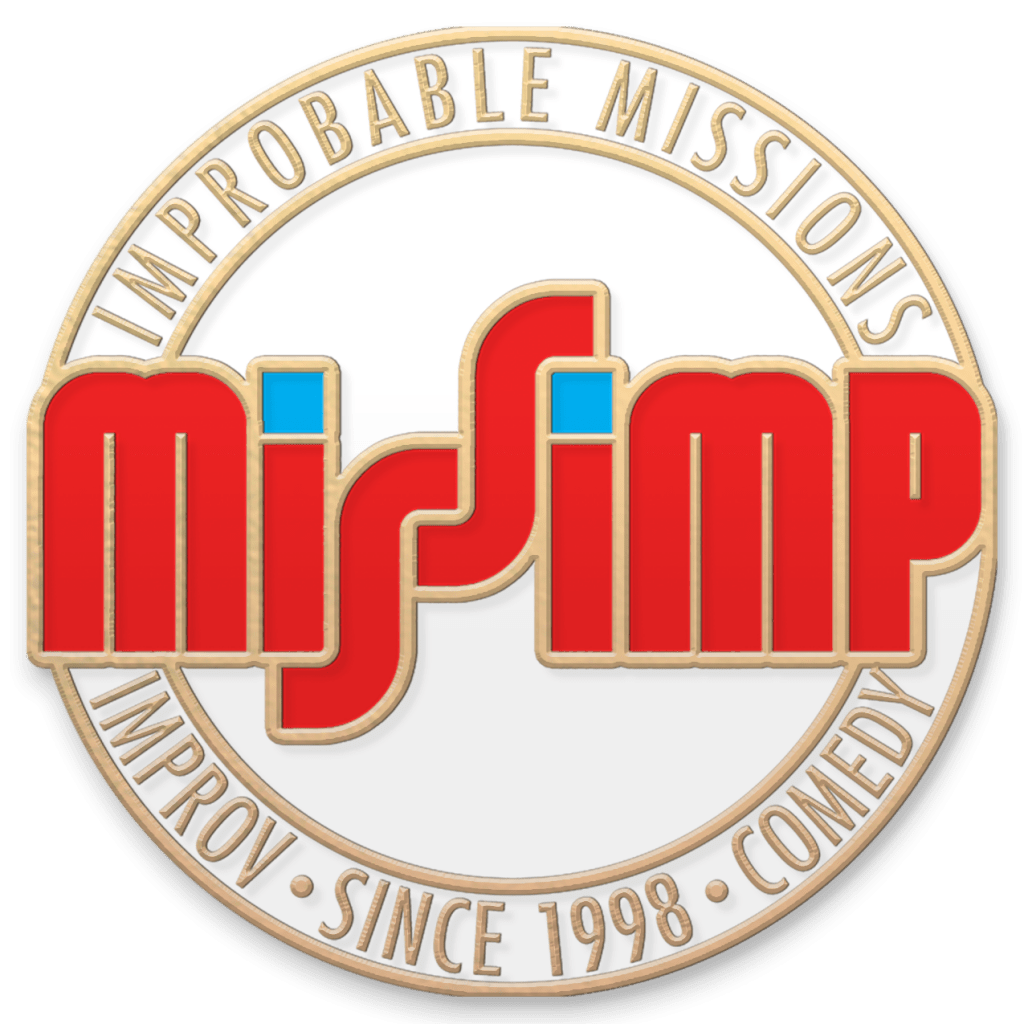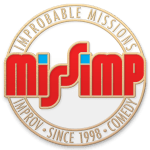This is the last part of Guy’s recounting of his journey while taking in five weeks of improv training at iO in Chicago, check out week one, week two, week three and week four. Some readers might find these a tough read, so note trigger warnings for being well outside your own comfort zone, autism spectrum disorder, existential crises, and facing up to your personal demons.
Was It All Worth It?
In a word, “Yes.” Most definitely. Now aren’t you glad I said that? Looking back on it, it all seems like a bit of a blur. It’s interesting how the perception of time seems to distort depending on what we are doing. When I was in Chicago, a week seemed like three. I’ve been back under a week and the experience now feels like it happened an age ago. I have many memories and experiences that I’m sure will persist. Looking back on it, it feels like being caught up in a whirlwind.
The Course
Week one was the basics with Matt Higbee. I wasn’t sure what to make of Matt at first but I realized that he is a warm if quirky character. Week two was with Stacey Smith on physicality and being outside of your head. I felt intimidated by Stacey’s power and volume initially, but this was balanced out by a nurturing love and support which has resulted in her being my favourite teacher. Week three was Ryan Archibald with scene work. I found Ryan somewhat emotionally distant and didn’t feel he really injected any of his own energy into the classes. We were left to warm up and warm down off our own back, the classes were very heady and theory-based and I found them very draining. Week four delved further into The Harold with Tim Soska and Gretchen Eng (when Tim was off ill for a day). I loved Tim. I thought he was amazing, combining high energy enthusiasm with quirky delivery. He kind of reminded me of myself a little (hopefully that’s not insulting to Tim). I felt a real connection and he was a joy to learn from. I found Gretchen quite aggressive, but in hindsight I think I’m just intimidated by confidence. Week five was Harold practice and other longform structures with James Dugan. James was great, so calm and peaceful – he gave off a chilled-out vibe and didn’t get flustered when I had a bit of a moment. My instinct is that James was watching us, and assessing us, trying to identify strengths and weaknesses to create a bespoke learning environment to get us show ready for the graduation piece. We were lucky to have him.
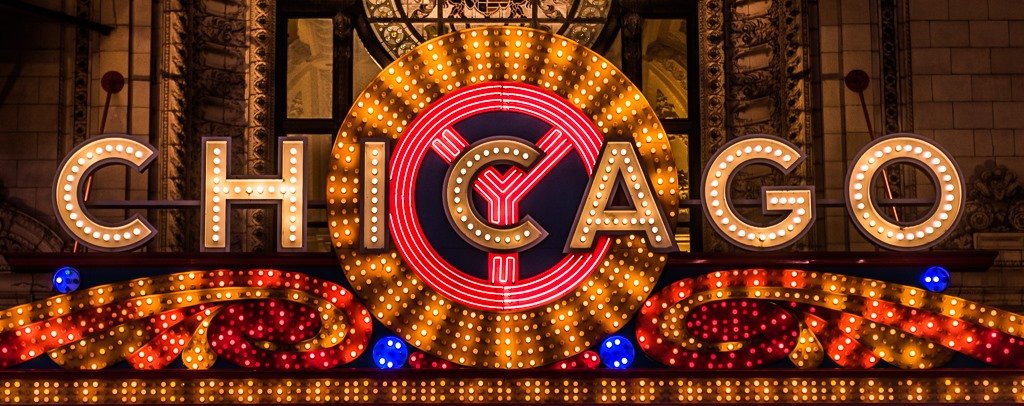
In Summary
Boiling everything down to the very basics, the course said, “here is your section (group). This is your support mechanism. No matter how hard it gets, or how difficult you find it, they will be there for you.” Then the course stretched us intellectually and emotionally beyond breaking point, to the point of failure. and then said, “See, it’s OK, your team mates have got you.” It was about being outside your head, outside your comfort zone, and playing grounded emotional scenes about relationships. Different schools have different emphasis: look after the relationship, look after yourself, or find the game. They all work, it’s all about having your own tool kit and finding whatever style makes you the best improviser you can be.
Low Points
For me the low points weren’t about the course at all but about my own sensory overload issue. This is definitely something iO could sort out relatively easily. I hope they decide to improve some of the teaching spaces. Even this negative could be seen as a positive: it taught me a lot about my own tolerances and learning to accepting my limitations without feeling ashamed.
High Points
In no particular order:
- Sipping Pina Coladas with Kevin on a boat on Lake Michigan
- Matt Higbee’s treasure hunt where I got to spend some healing time with the wonderful Tessa Abbott and Lyndsey Pearce
- Performing the grad show and not feeling like I fucked it up
- Drunken dancing to footloose at the center of a circle of Section 6 at the after-show party
The Harold
After studying the Harold solidly for five weeks, do I want to be in a Harold team? The simple answer is, “no”. The Harold is a wonderful and invaluable training device, but It’s not my favourite longform structure. If you imagine a triangle with Comedy, Drama and Art at each point I think any improv show falls somewhere between them. The Harold probably falls dead center, but for me personally, where I am right now, I’m not interested in performance art. Right now, my preference for continued learning would be the Slacker and the Armando, building up to some twoprov at some point in the future.
Should I Do It?
If you have the opportunity, then yes, definitely, you should do it. Just bear in mind that when they say, “intensive” they mean intensive. It’s not easy. Nope, not at all.
The photos of Chicago included are taken by Guy Berresford himself! Check out more of his pics here.

